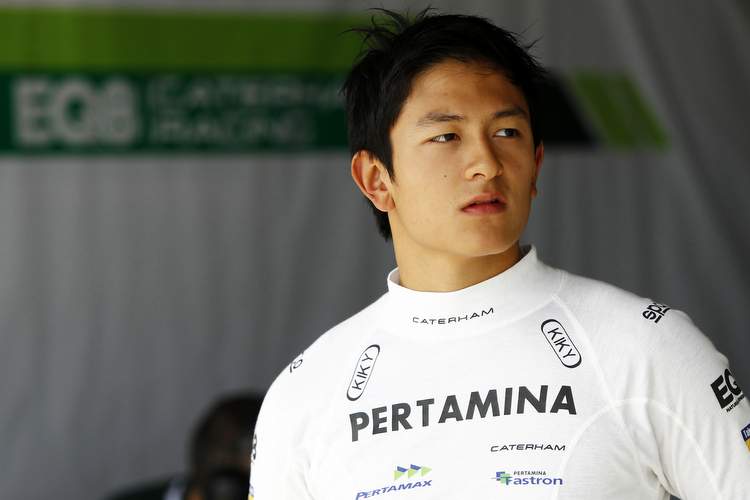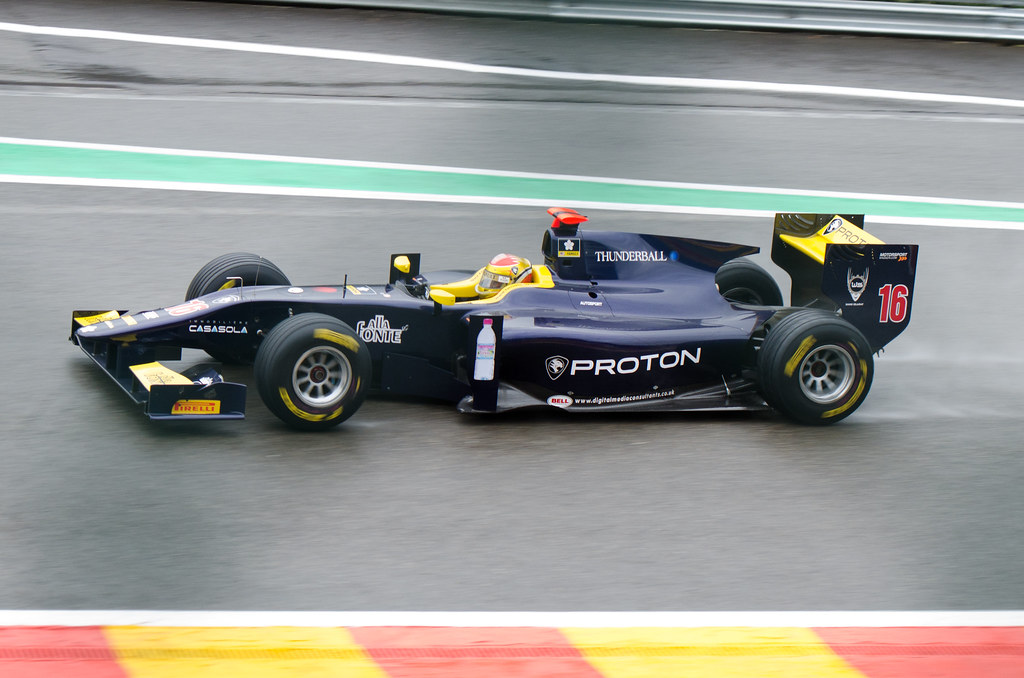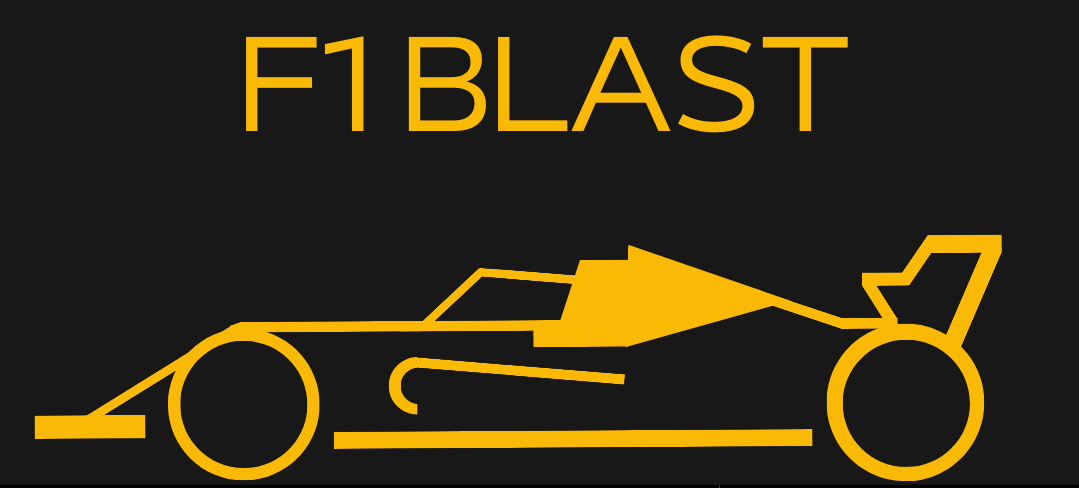The Significance of Representation in Motorsports
Like many professional sports, Formula 1 has historically lacked substantial representation from minority racial, ethnic, and religious groups. As one of the most popular motorsports in the world, Formula 1 serves as an elite platform that receives tremendous media coverage and cultural influence, yet there were only two Muslim drivers in Formula 1 history.
The presence of drivers from diverse backgrounds in Formula 1 communicates an inclusive environment that welcomes talent regardless of identity. It also inspires youth from those communities to pursue their dreams in a sport they may not have seen themselves represented in before. Despite being a huge part of the world population, the first Muslim driver in Formula 1 joined Manor in 2016.
Pioneering Muslim Drivers in formula 1: Rio Haryanto and Fairuz Fauzy
Indonesian driver Rio Haryanto and Malaysian driver Fairuz Fauzy stand out as the only Muslim drivers to compete in Formula 1, and only Rio Haryanto drove in the races. The Malaysian driver spent some time as a test driver, and never started in an official F1 race. Both shattered perceptions and paved the way for greater inclusion in the future.
Rio Haryanto’s Formula 1 Journey
Early Years and Ascension in Motorsports
Born in 1993 in Surakarta, Indonesia, Rio Haryanto began karting at age 6, showing an early passion for racing. By 2008, he transitioned to single-seater racing, competing in Asian Formula Renault and Formula Asia 2.0. The following year, Haryanto dominated the Formula BMW Pacific championship with 6 wins out of 15 races and being known for his good tire management.
In 2010, Haryanto headed to Europe where he joined Manor Racing’s GP3 team. He finished an impressive 5th in the standings as a rookie, including a race win. This earned him a Formula 1 test drive with Virgin Racing (now Manor) that put him on the radar of Formula 1 teams.
Formula 1 Career
In 2016, Haryanto finally accomplished his dream by landing a Formula 1 race seat with Manor Racing. He made history as the first Indonesian Formula 1 driver, representing immense pride for his country, as well as being the first of hopefully many more, Muslim f1 drivers in Formula 1. However, driving for the backmarker Manor team in an underperforming car posed difficulties from the start.
In 12 race starts, Haryanto qualified no higher than 17th. Reliability issues forced several retirements, and his best finish was 15th in Austria. While he regularly outpaced his teammates in GP2, Haryanto struggled to match F1 rookie Pascal Wehrlein’s pace at Manor. After the German Grand Prix, his sponsorship funding ran out, ending his Formula 1 career.
Despite the challenges, Haryanto’s breakthrough as both an Indonesian and Muslim driver in Formula 1 carved an invaluable path for future diversity. His perseverance through Europe’s junior formulas and qualification on merit deserves deep admiration.

Legacy and Impact
As the first Indonesian in Formula 1, Rio Haryanto ignited an immense sense of national pride and possibility for aspiring youth drivers in his country. His pioneering journey captured the attention of over 260 million people in the world’s largest Muslim majority country.
Since leaving Formula 1, Haryanto continues to race across various Asia-based series. He also runs a racing academy in Indonesia to mentor the next generation of drivers. By competing at the pinnacle of motorsports, he etched his name as a trailblazer for Muslim inclusion in Formula 1.
Fairuz Fauzy’s Contributions to Formula 1
From Karting to Formula 1 Test Driver
Hailing from Kuala Lumpur, Malaysia, Fairuz Fauzy began karting in 1994 before working his way up the European racing ladder. He competed in British Formula Ford, British Formula Renault, and British Formula 3 during a 5-year UK stint. Fauzy also raced in GP2 and the A1 Grand Prix series, becoming one of Malaysia’s top racing prospects.
In 2007, Fauzy achieved a major milestone by becoming a test driver for the F1 Spyker team. Over the next several years, he took on test roles for the F1 teams Spyker, Lotus Racing, Lotus Renault, and Renault, focusing more on development rather than race driving.

Role and Achievements as a Test Driver
As an F1 test driver, Fairuz Fauzy took on critical development duties including simulation testing, car setup, and aerodynamic validation across various tracks. Test drivers play a pivotal, albeit unseen, role in racing success.
Fauzy’s immense work helped lay the foundation for Lotus and Renault’s climb back up the mid-field in subsequent seasons. At Malaysia’s 2010 Grand Prix, Fauzy also became the first Malaysian to participate in a home Grand Prix weekend by driving Lotus’ car for the Friday morning practice session. He later took part in another training session, ahead of the British Grand Prix, replacing Jarno Trulli for a Friday morning practice.
Beyond the Cockpit
Outside of F1 testing, Fairuz Fauzy competed in endurance racing across Asia including Japan’s Super GT championship. He has also been instrumental in cultivating Malaysian motorsports through involvement with the national Sepang Racing Team.
As a distinguished veteran of racing, Fauzy actively pays it forward by training emerging drivers under his FFY Racing Team banner. Appointed as Motorsports Ambassador for Malaysia in 2018, he works diligently to increase interest in the sport through nationwide campaigns and initiatives.
Observing Ramadan as a Formula 1 Driver
Challenges and Adaptations
The fasting month of Ramadan presents a unique challenge to Muslim drivers competing in intense motorsports like Formula 1. Abstaining from all food and drinks from sunrise to sunset significantly impacts energy levels and metabolic function. Most drivers also alter training schedules to have more flexibility for meals at night.
Formula 1 teams have nutritionists compose personalized meal plans for heavier caloric intakes during allowed hours to sustain performance. Increased water intake, especially with hydration salts, also helps compensate for fasting. Teams monitor drivers closely for signs of dehydration or nausea during races.
Support from the Teams
Formula 1 teams take extra steps to accommodate their Muslim drivers during Ramadan. This includes flexibility in testing and simulator runs to conserve energy for priority races. Training facilities are also equipped with spaces for prayer requirements.
Both Renault and Lotus allowed Fairuz Fauzy to adjust his rigorous test driver duties across their operations in Enstone and Viry. Manor similarly adapted their garage setup to make Rio Haryanto comfortable when racing and practicing during Ramadan months.
A Respectful Celebration
The celebratory champagne spray on podiums has become a customary tradition in motorsports. However, Muslim drivers abstain from alcoholic consumption as part of their faith’s doctrine. Formula 1 now accommodates this by allowing non-alcoholic sparkling grape juice like rosewater or cider instead.
Podium celebrations also avoid directly spraying drivers who decline champagne out of respect. This considers greater inclusiveness regarding varying faith-based preferences in the sport.
Formula 1’s Adaptation to Ramadan: The 2024 Middle Eastern Grands Prix
Scheduling for Inclusion
In an historic first, Formula 1 announced scheduling changes for the 2024 Bahrain and Saudi Arabian Grand Prix races to be held on Saturdays instead of Sundays. Since these races occur in April, during Ramadan month, the altered one-day format avoids fasting complications for drivers and fans alike.
This groundbreaking decision came after extensive discussions between team principals and local race organizers regarding optimal timing. It sets a compelling precedent for Formula 1 adapting its calendar to improve diversity and accessibility.
Impact on the Sport
Rescheduling marquee Middle Eastern races around Ramadan fasting periods indicates Formula 1’s growing understanding of Muslim traditions. This change enables unrestricted event enjoyment for all audiences while supporting participating drivers.
Moreover, it boosts Formula 1’s aspirations to expand viewership and event attendance across new non-European markets. The flexible 2024 calendar signifies a major milestone in establishing motorsports as a truly diverse global spectacle, and the plan to change the calendar for 2025 to avoid racing in Bahrain and Saudi Arabia during Ramadan additionally highlights the importance of understanding the differences between cultures.

